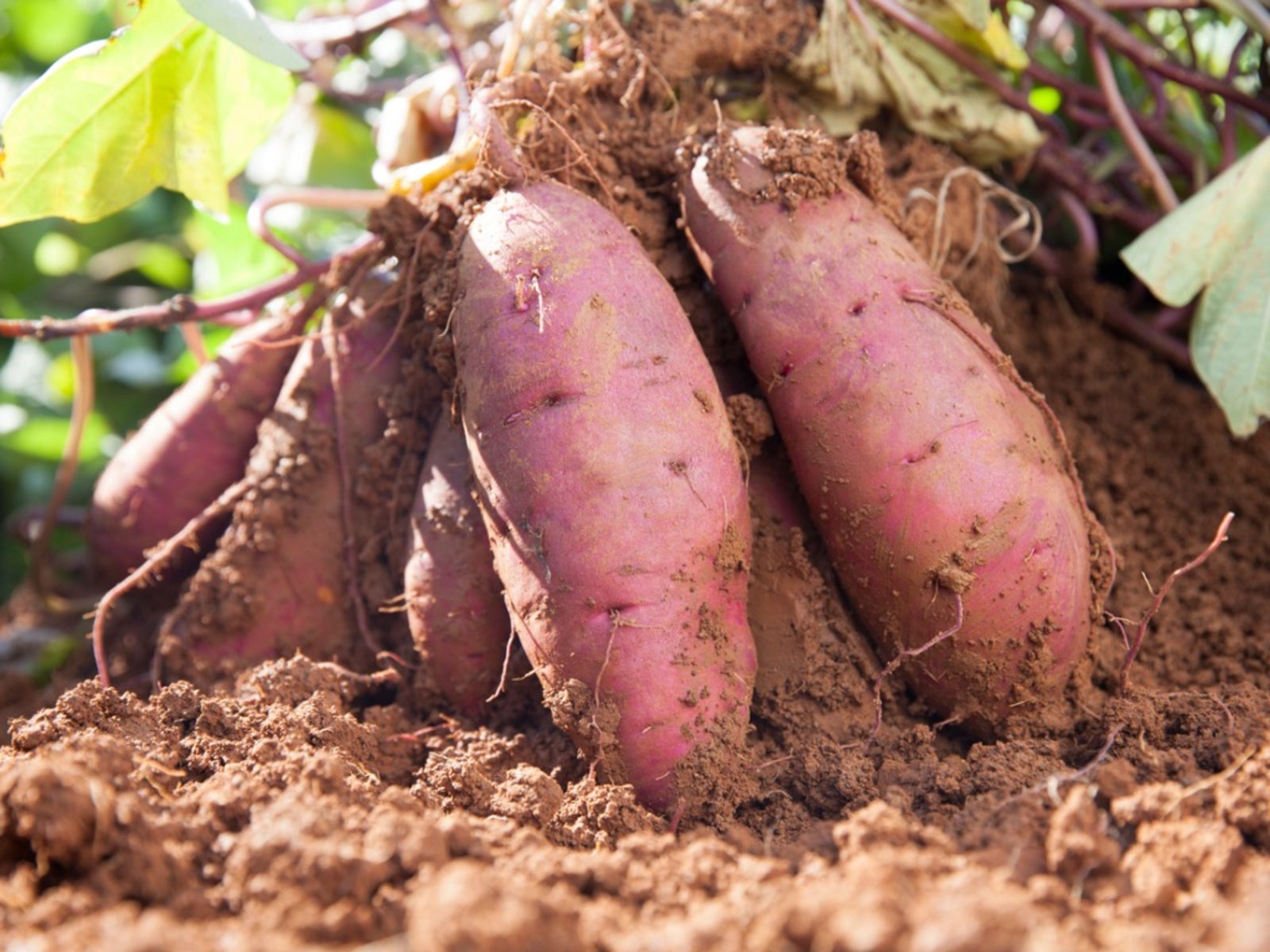Sweet Potato Stem Rot – Treating Sweet Potatoes With Fusarium Rot


Sign up for the Gardening Know How newsletter today and receive a free copy of our e-book "How to Grow Delicious Tomatoes".
You are now subscribed
Your newsletter sign-up was successful
The fungus that causes sweet potato stem rot, Fusarium solani, causes both field and storage rot. The rot can affect leaves, stems, and potatoes, creating large and deep lesions that ruin the tubers. You can prevent and control this infection with some simple measures.
Sweet Potatoes with Fusarium Rot
The signs of a Fusarium infection, also known as root rot or stem rot, may be seen in the plants in your garden or later in the potatoes that you store. Rotting sweet potato plants will show early signs on the tips of young leaves, which turn yellow. Older leaves will then begin to drop prematurely. This can result in a plant with a bare center. The stems will also begin to rot, right at the soil line. The stem may appear blue. Signs of the disease in the sweet potatoes themselves are brown spots that extend well into the potato. If you cut into the tuber, you’ll see how deeply the rot extends and you may also see white mold forming in cavities within the areas of rot.
Controlling Rot Disease in Sweet Potatoes
There are several ways to prevent, minimize, and control this fungal disease in sweet potatoes to reduce crop losses:
- Start by using good seed roots or seed potatoes. Avoid using any that look diseased. Sometimes the disease signs are not visible in seed potatoes, so a safer bet is to go with resistant varieties.
- When cutting transplants, make the cuts well above the soil line to avoid transferring the infection.
- Harvest your sweet potatoes when conditions are dry and avoid damaging the potatoes.
- If you do get stem rot of sweet potatoes, rotate the crop every few years to prevent the fungus from really taking root in the soil. Use a fungicide such as fludioxonil or azoxystrobin.
It is important to watch for signs of this infection because, if left unchecked, it will ruin many of your sweet potatoes, rendering them inedible.
Sign up for the Gardening Know How newsletter today and receive a free copy of our e-book "How to Grow Delicious Tomatoes".

Mary Ellen Ellis has been gardening for over 20 years. With degrees in Chemistry and Biology, Mary Ellen's specialties are flowers, native plants, and herbs.